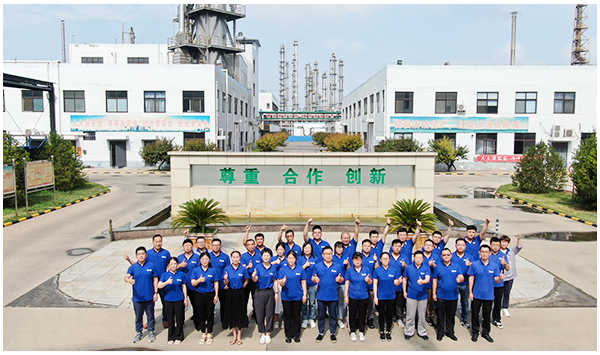
News
Nov . 10, 2024 03:46 Back to list
Exploring the Benefits of Metal Chelating Agents in Pool Water Management Techniques
The Importance of Chelating Agents in Pool Water Management
Maintaining the quality of pool water is crucial for both aesthetics and safety. One often-overlooked aspect of pool maintenance is the role of metal chelating agents. These compounds play an essential role in preventing metal-related issues in swimming pools, ensuring that the water remains not only clean but also safe for swimmers. In this article, we will explore what chelating agents are, how they function, and why they are vital for pool maintenance.
Understanding Chelating Agents
Chelating agents are compounds that interact with metal ions, forming stable complexes that keep these metals from reacting with other substances. In the context of pool water, metals such as copper, iron, and manganese can enter the water through various means—such as pipes, rainwater, or even pool chemicals. When these metals are present in the pool water, they can cause a range of problems, including staining of pool surfaces, deterioration of equipment, and discomfort for swimmers.
Common chelating agents used in pool maintenance include EDTA (ethylenediaminetetraacetic acid) and citric acid. These substances effectively bind to metal ions, preventing them from causing undesirable reactions. For pool owners, understanding the function of these agents is the first step in maintaining a crystal-clear pool.
The Negative Effects of Metal Contamination
Metal contamination in pool water can manifest in several ways. Stains on the pool walls and floor are one of the most visually obvious signs. For example, copper can create unsightly greenish stains, while iron can lead to reddish-brown discoloration. Beyond the aesthetic issues, these stains can contribute to the corrosion of pool surfaces and equipment, leading to higher maintenance costs and potential safety hazards.
Furthermore, high concentrations of certain metals can lead to skin irritation or allergic reactions in swimmers. This is particularly concerning for individuals with sensitive skin or those who suffer from conditions like eczema. By proactively managing metal levels through the use of chelating agents, pool owners can create a safer swimming environment.
pool water metal chelating agent quotes

How Chelating Agents Work
The mechanism of action for chelating agents is straightforward yet effective. When added to pool water, these agents seek out free metal ions and form a bond with them. This bond is robust enough that it prevents the metals from reacting with other chemicals in the pool. For example, a chelating agent may prevent copper from reacting with chlorine, which can cause further complications and reduce the effectiveness of sanitizers.
Additionally, many chelating agents are designed to be highly soluble, allowing them to disperse quickly throughout the water, providing rapid stabilization of metal ions. This makes them a convenient option for pool maintenance. Regular treatment with chelating agents can help maintain a balanced chemical composition in the water, thereby prolonging the life of the pool and its fixtures.
Best Practices for Using Chelating Agents
Using chelating agents effectively requires adherence to best practices. Pool owners should regularly test water chemistry to monitor metal levels and adjust their treatment regimen accordingly. Ideally, chelating agents should be applied when metal levels are on the rise or when water quality appears compromised.
Moreover, it's essential to follow the manufacturer's instructions regarding dosage and maintenance schedules. Over-application may lead to imbalances in other chemical levels, affecting overall water quality. Regular maintenance checks and a systematic approach to treating pool water can lead to optimum results.
Conclusion
In summary, the role of metal chelating agents in pool water management cannot be overstated. These compounds are crucial for preventing metal-related issues that can detract from the enjoyment and safety of swimming. By understanding the importance of these agents and implementing them effectively, pool owners can ensure that their pools remain clean, safe, and attractive for all users. As pool maintenance continues to evolve, the use of chelating agents will likely remain an indispensable tool in promoting pool health and enhancing the swimming experience.
-
Polyaspartic Acid Salts in Agricultural Fertilizers: A Sustainable Solution
NewsJul.21,2025
-
OEM Chelating Agent Preservative Supplier & Manufacturer High-Quality Customized Solutions
NewsJul.08,2025
-
OEM Potassium Chelating Agent Manufacturer - Custom Potassium Oxalate & Citrate Solutions
NewsJul.08,2025
-
OEM Pentasodium DTPA Chelating Agent Supplier & Manufacturer High Purity & Cost-Effective Solutions
NewsJul.08,2025
-
High-Efficiency Chelated Trace Elements Fertilizer Bulk Supplier & Manufacturer Quotes
NewsJul.07,2025
-
High Quality K Formation for a Chelating Agent – Reliable Manufacturer & Supplier
NewsJul.07,2025
